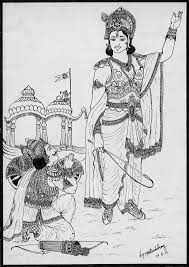Yoga of Krishna

An action without desiring result, whatever you do, you will have no single feeling of un-success, neither feeling of revenge nor you have any expectations from the work or from yourself. This will help you to remain calm, the action which performed with the desire of result leads you in pressure and therefore before performing the act you have pre-deposit that the result will be according to the act, and fear of failing to get the desired result, that leads you to frustration. The substance like desire, frustration, expectations, sorrow, and pity all affects the body and the blood pressure changes with such feelings that affect not only our psychology but also our body. See a businessman in metro city, he invest money in business expecting the result that the money will multiply. He creates hope and expectation with this action or karma of investment and these hopes and expectations increased his blood pressure as he remains thinking about the result every time. And if suppose the
